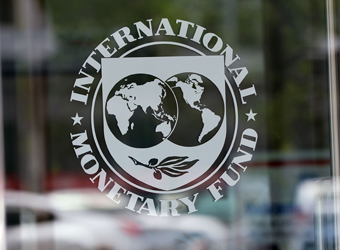An IMF delegation started to conduct the second periodic review of Egypt’s economic reform programme in preparation for providing the country the second tranche of a $12 billion loan, which is estimated at $2 billion.
The IMF meetings with Egyptian officials are set to last for two weeks, according to a statement by the Ministry of Finance.
A delegation of the IMF Mission for Egypt, Middle East and Central Asia, which is conducting the review, had arrived in Cairo on Tuesday.
Vice Minister of Finance for Financial Policies Ahmed Kouchouk said that funds from the IMF loan will be used to finance the state’s budget deficit while the Central Bank of Egypt (CBE) will benefit from cash in foreign currency to support the foreign exchange balance reserves.
The IMF mission’s visit will include a meeting on Sunday with CBE governor Tarek Amer and Finance Minister Amr El-Garhi, according to Kouchouk.
Minister El-Garhi said that Egypt aims to demonstrate to the IMF mission the latest positive economic developments, including high economic growth and reduced unemployment rates.
In September, the IMF praised Egypt’s efforts in implementing its economic reform programme despite seeking waivers for missing some targets in June and a deeper-than-expected currency depreciation, but inflation remains the main risk for stability.
The economic growth rate increased during the last quarter of 2016/17 to 4.8 percent, while the unemployment rate decreased to 11.9 percent in 2017, compared to 12.7 percent in June 2016, according to official data.
Egypt’s foreign reserves registered $36.535 billion at the end of September 2017, continuing the surge over the past few months.
The country’s initial budget deficit decreased by 50 percent during the financial year 2016/2017, falling by 1.8 percent of GDP compared to 3.6 percent in the financial year 2015/2016.
In July, the CBE received the final instalment of the first $4 billion tranche of the IMF loan.
In mid-August 2016, Egypt signed an agreement with the IMF over the three-year $12 billion loan to endorse the country’s fiscal reform programme, which the government embarked on in 2014 in an attempt to curb the growing state budget deficit.
In November 2016, Egypt received the first instalment – an initial disbursal of $2.75 billion – of the first tranche following the floating of the Egyptian pound. Source: Ahram online
Source: Ahram online


